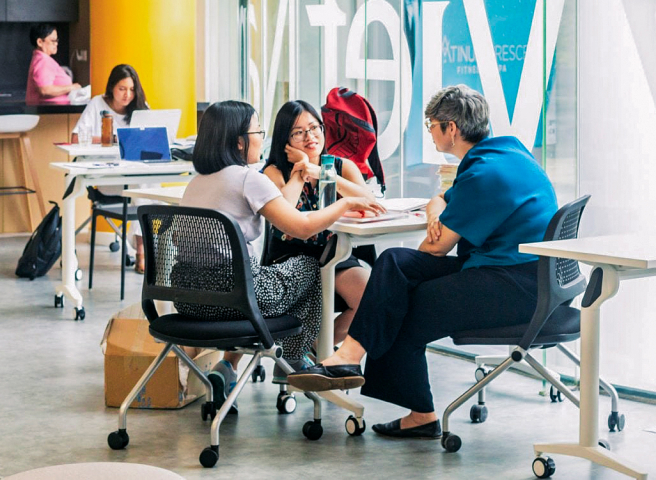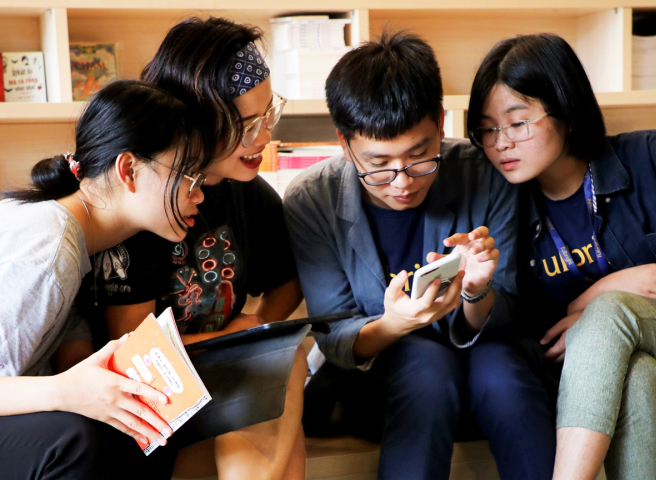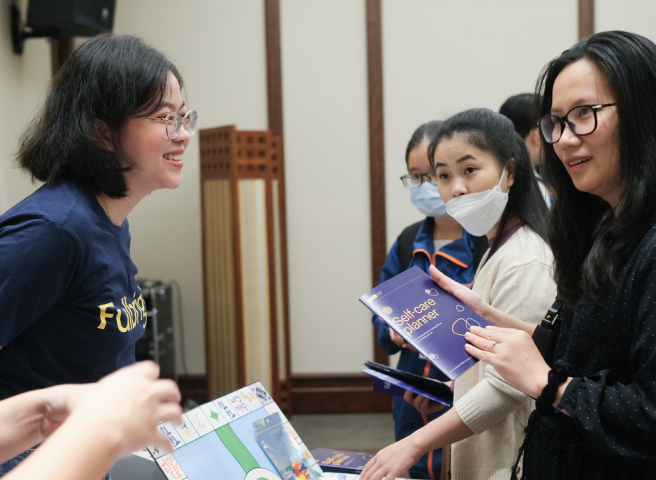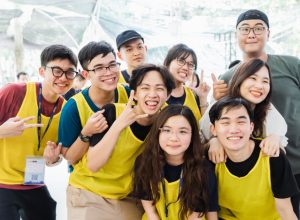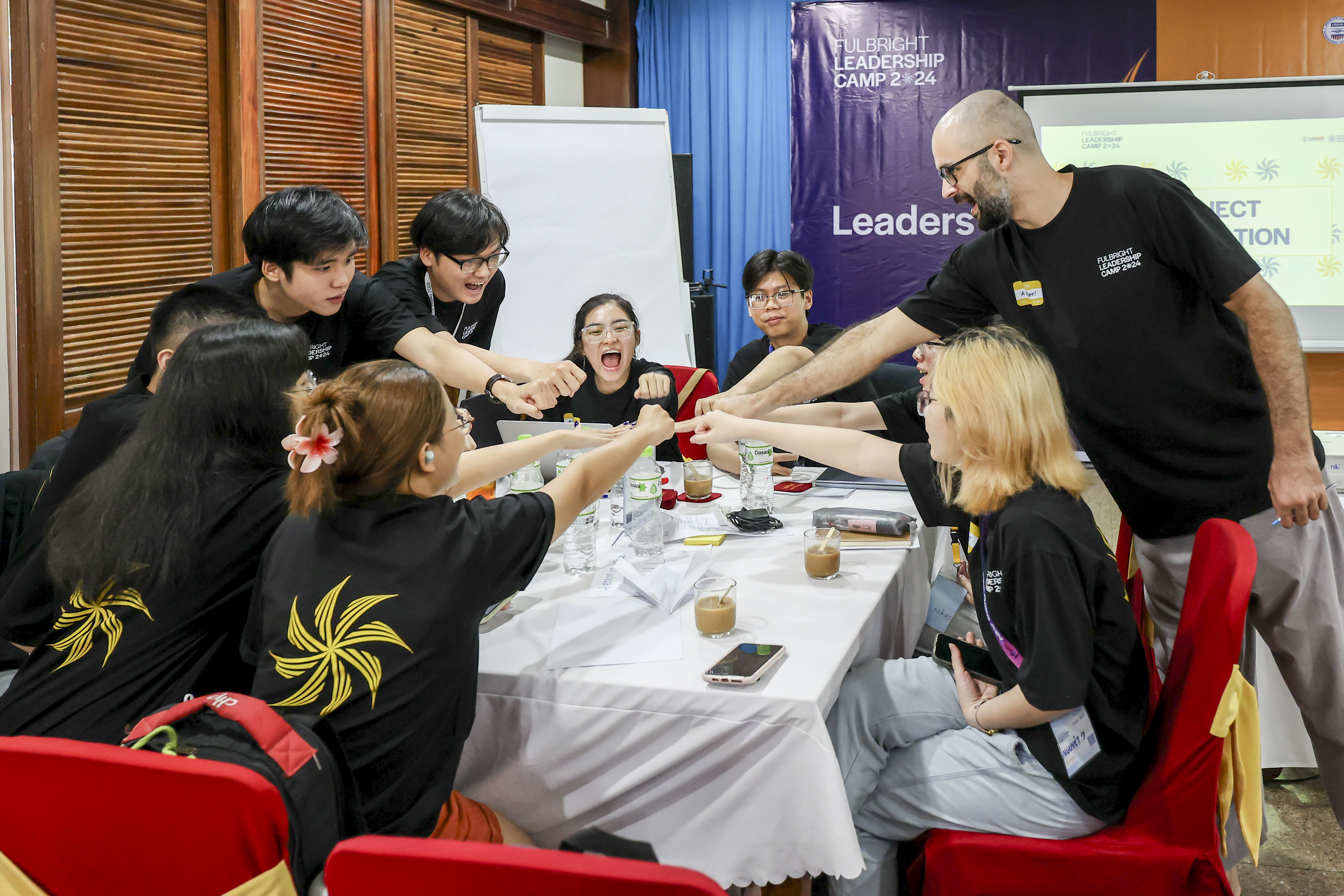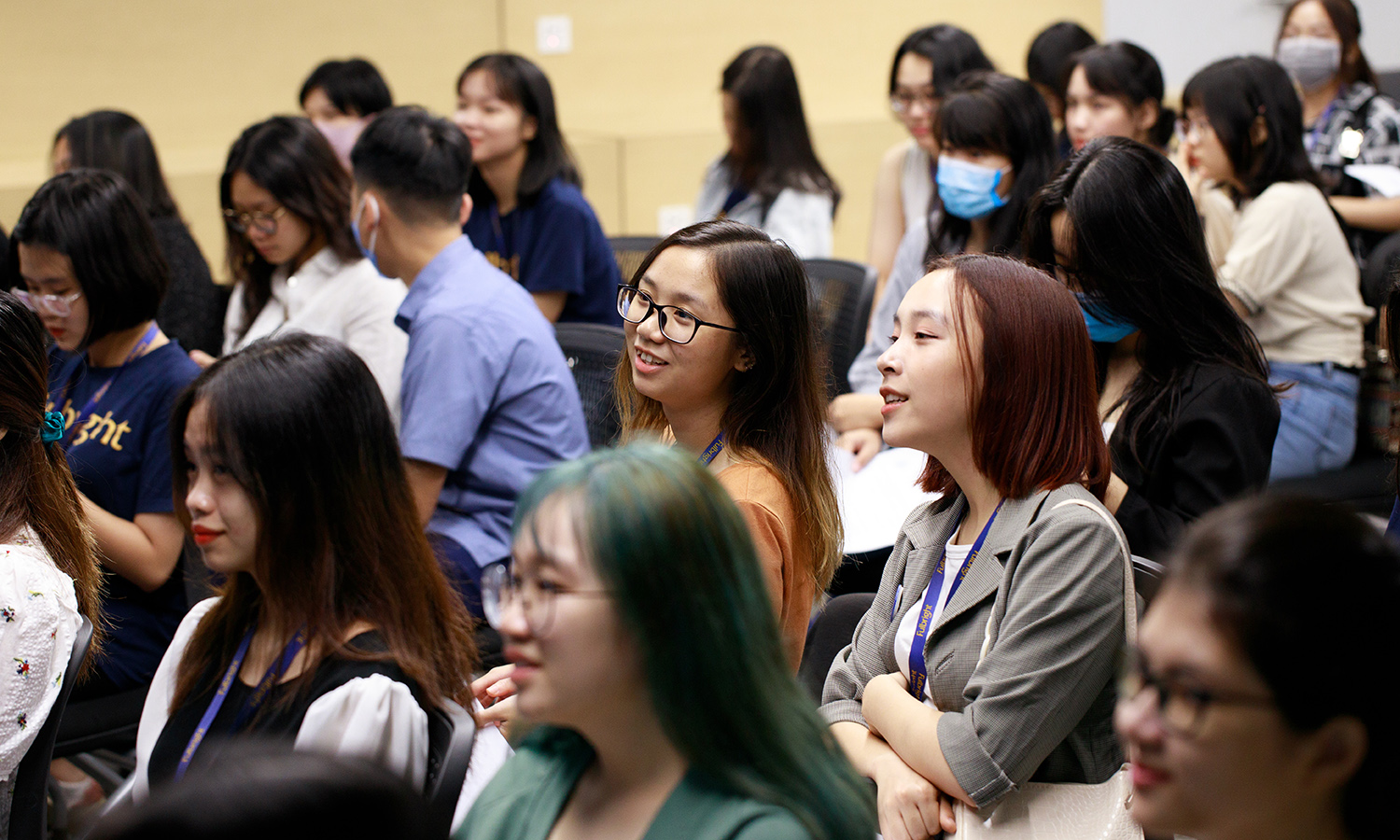
Digital technology transforms the way we live: from how we travel, to what we use for money, to how we swipe to find love. At the heart of these social, cultural, and economic changes lie mathematics and computer science. But how can we gather the information, interpret the data, and construct the algorithms that drive these advances and affect our lives?
It is commonly expected that students who wish to gain a better understanding of data and computer science will specialize in STEM fields before getting to those big questions. But Fulbright’s newly minted course titled Quantitative Reasoning in the Digital Age is part of our core curriculum, which means it is compulsory for all students regardless of their backgrounds and career goals. Whether they wish to specialize in immediately relevant fields, e.g. Engineering or Integrated Science, or if they intend to pursue supposedly more tangential fields, such as Vietnamese Studies or History. All students stand to benefit from a balanced set of quantitative and qualitative analysis skills to develop a deeper, more sophisticated understanding of a complex world, the necessary foundation to become flexible thinkers and agile problem solvers.
“Qualitative approaches are sometimes given greater emphasis in the humanities, but students should be aware of different ways of looking at similar kinds of problems. For example, I could imagine students having taken classes such as Dr. Kalman’s digital anthropology suddenly making connections between the way they studied people and cultures in digital spaces and how they could investigate this differently using data-centric approaches they learn in our class,” explains Dr. Walker.
A behavioral economist, Dr. Walker designed the course with two other professors: Dr. Tran Vinh Linh, specialized in applied mathematics, and Dr. Sebastian Dziallas, a computing education specialist. With a deep emphasis on interdisciplinary thinking, this constitutes a concerted effort to go beyond the common understanding of “hard” and “soft” sciences, offering every student a groundbreaking introduction to computational thinking and data driven approaches. The professors are supported by 3 sophomores working as teaching assistants for the semester. Throughout the course, the students will work in groups to conduct research and model ways people make friends and build social networks before sharing their insights in their final presentations.
Data-powered discovery
In this ambitious course, students gain exposure to mathematical and programming tools that allow them to extrapolate, visualize and find meaning in data. While Fulbright’s version of Quantitative reasoning does indeed develop foundational skills in mathematics and computer science, it does so concurrently to demonstrating how those concepts inform fields as diverse as economics, psychology, history, and philosophy. For Tran Thanh Thuy, who had already developed an interest in computer science, enrolling in the course made her better appreciate its possibilities. “When I enrolled for the class I was focused on the “computing” aspect. So I was surprised when the problems we were given related to so many different topics. There was biology, social networks, chemistry, and so on. It really showed me that computer science is useful for everything, as long as we know how we can convert our problem into usable numbers and the tools we can use to find a solution,” she recalled.
This sense of discovery is critical to any introductory class. For students who already have notions of specializing like Thuy, this is both an opportunity to confirm their interest and experience different ways to approach their future specialty. For those unfamiliar with the subject, the course constitutes a major determinant for future career orientation. “As a core course, the goal is not to turn everyone into a math specialist. You might come out of the course thinking ‘I didn’t expect that. Maybe I’ll take another course.’ And that’s great. You can also come out having learned something you didn’t expect, even if you know that this isn’t for you. That’s also a win.’,” explains Dr. Dziallas.
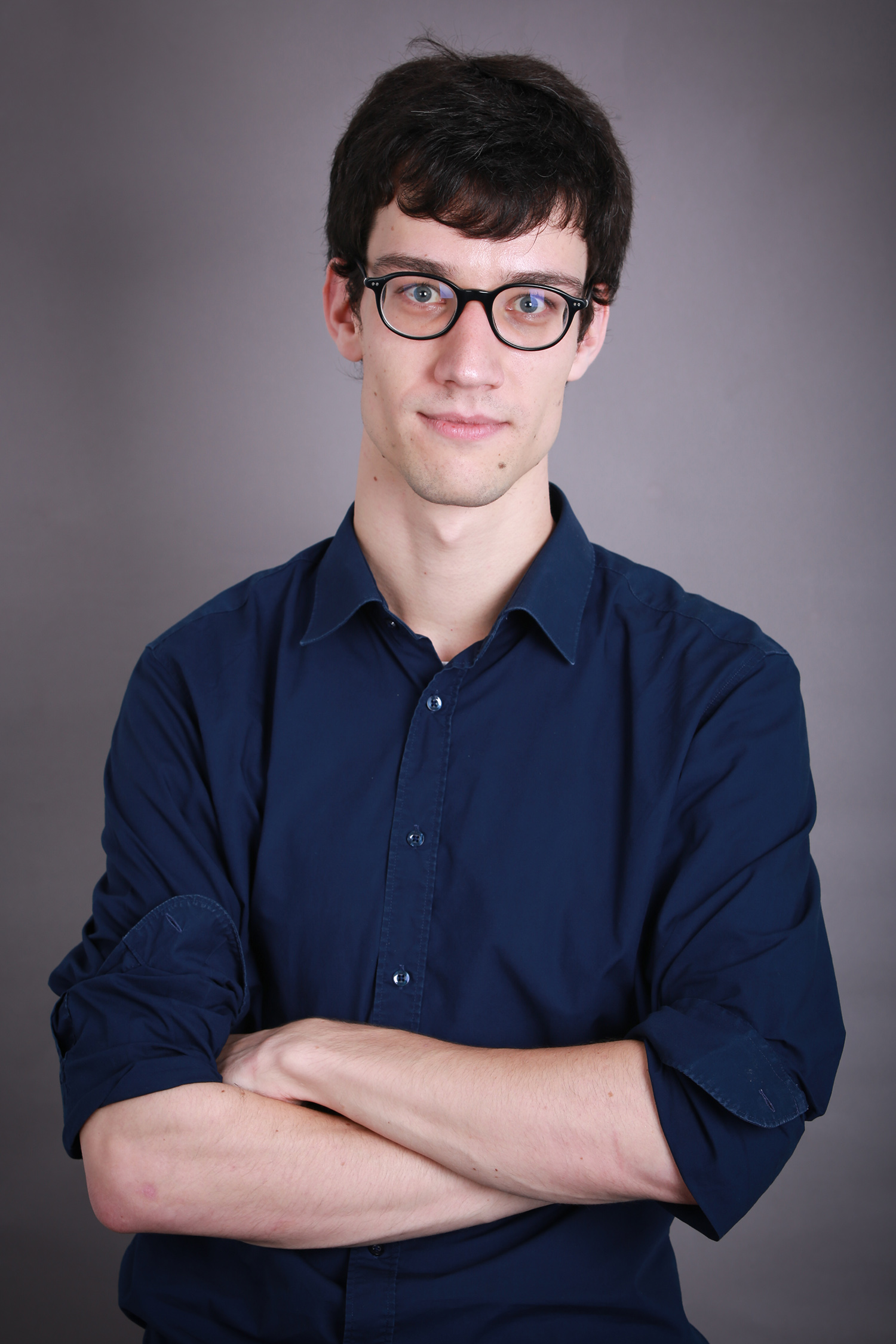
Dr. Sebastian Dziallas
Although quantitative reasoning is a technical topic, dense theoretical lectures are not the focus- individual discovery takes center stage instead. Compared to standard lesson plans that begin with theory, before moving to how it is applied, and ending with problems for students to solve, the approach here is reversed. The professors start with problems that have real and immediate application, before consolidating and concluding with the underpinning theory. For example, students were made to find the shortest point between two locations, a ubiquitous problem routinely solved by rideshare and map applications around the globe. “By giving them real world problems, we encourage students to find ways to turn information into useable data that can be modeled mathematically, use computational tools to assist said modelling, before drawing conclusions that will answer the problem,” says Dr. Linh. This problem-theory-application-problem cycle gives students a reason to drive their own learning and go through the “pain” of assimilating theory. Each worksheet given in class must be solved by students either individually or in groups, and function as both puzzle and building block, leading to larger understanding.
“Think of this course as a video game: on one level you solve riddles that give you useful tools to solve those on the next levels, and you plow ahead until reaching the endgame,” says Nguyen Cao Nghi. As both a second-year and as a teaching assistant for this course, he summarizes the Fulbright method rather succinctly: “rather than depositing knowledge in students’ heads, the aim is to constantly challenge them to find their own methods with as little guidance as possible.”
“But you’re not alone in this game,” he continues. “You are always supported by your 5 teammates, 3 TAs, 3 instructors, and a team of more than 10 peer mentors from the Learning Support department.”
Accessible knowledge
In the professors’ perspective, teaching assistants have played a crucial role in making this introductory course more accessible, as they often quickly identified aspects of the course that could be challenging. Beyond difficult mathematical concepts, a surprising issue was the use of English vocabulary. Not because students didn’t know a specific word, but instead because that word had varied definition. A perfect illustration is the word graph: “It can mean a social network in the context of the class. In math, it usually refers to a mathematical function. In economics, it’s usually related to supply and demand. Because we identified it quickly we could clarify immediately,” explains Graeme.
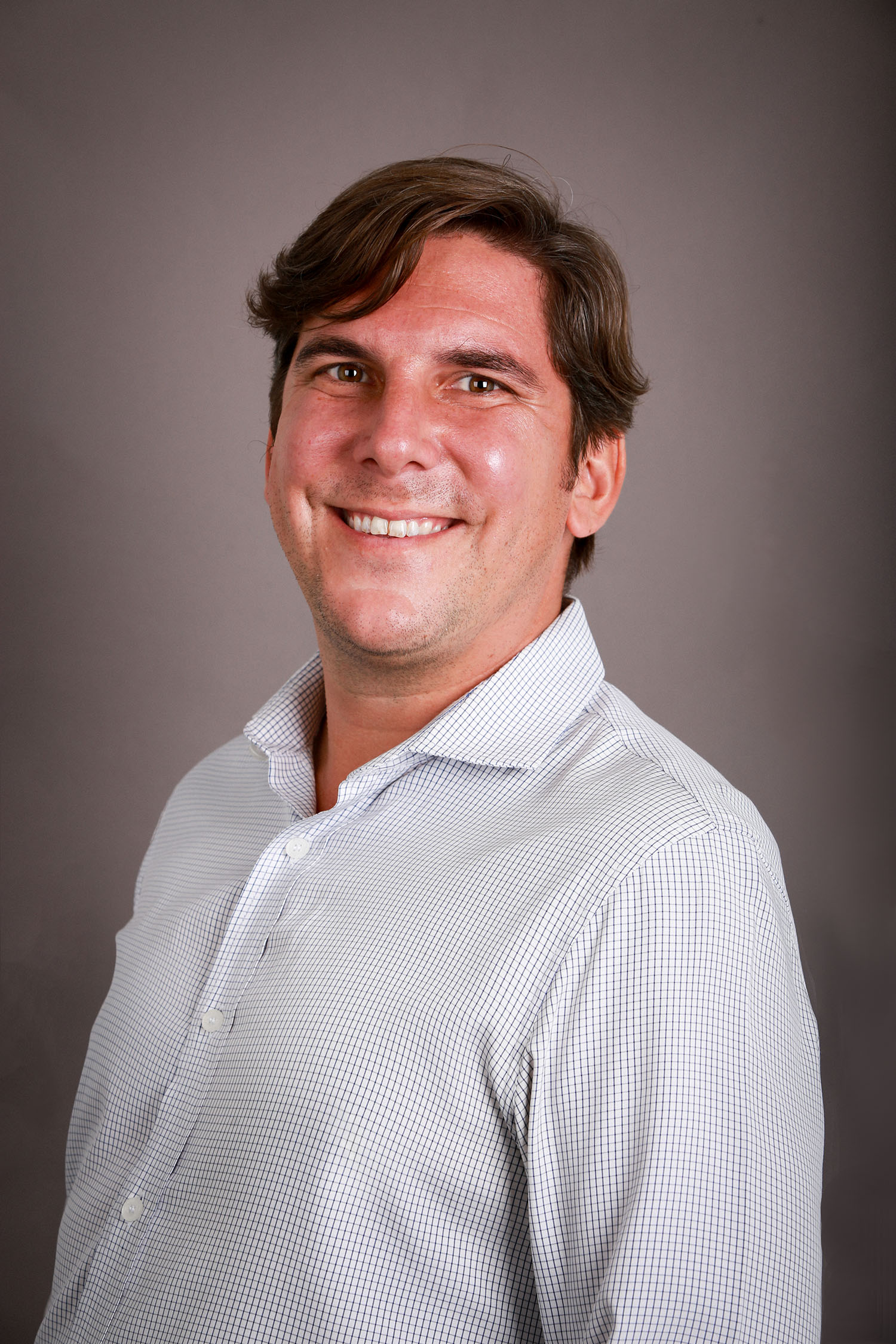
Dr. Graeme Walker
Beyond the lexical difficulties, however, graphs and other visual medium such as maps further posed unique challenges to the two visually-impaired Fulbrighters currently studying quantitative reasoning. The professors, TAs, and academic assistant had to devise unconventional solutions to ensure the materials were accessible to all, such as creating tactile maps or even simply drawing matrices and vectors on the palm of their hands.
“This course is very new and exciting to us, and I can only imagine how foreign it can be to them. We have learned so much from the different perspectives involved in the making of this course,” Graeme emphasized.
Team Brain
What constitutes an approachable problem for a budding computer scientist might not be the same for a student who has a stronger affinity for the social sciences or the humanities, making such varied backgrounds and expectations a major challenge when designing the course.
Furthermore, while some students are sophomores used to Fulbright’s active, student-centric approach to learning, others are first years coming from high school, where traditional teaching methods emphasize learning the right answers to perform well on a test. “It’s quite new for Vietnamese students to do anything rather informal like this. In high school, they all have their book, they learn by heart to do well on the exam, without wondering about the hows and whys of what they are learning,” explains Dr. Linh.
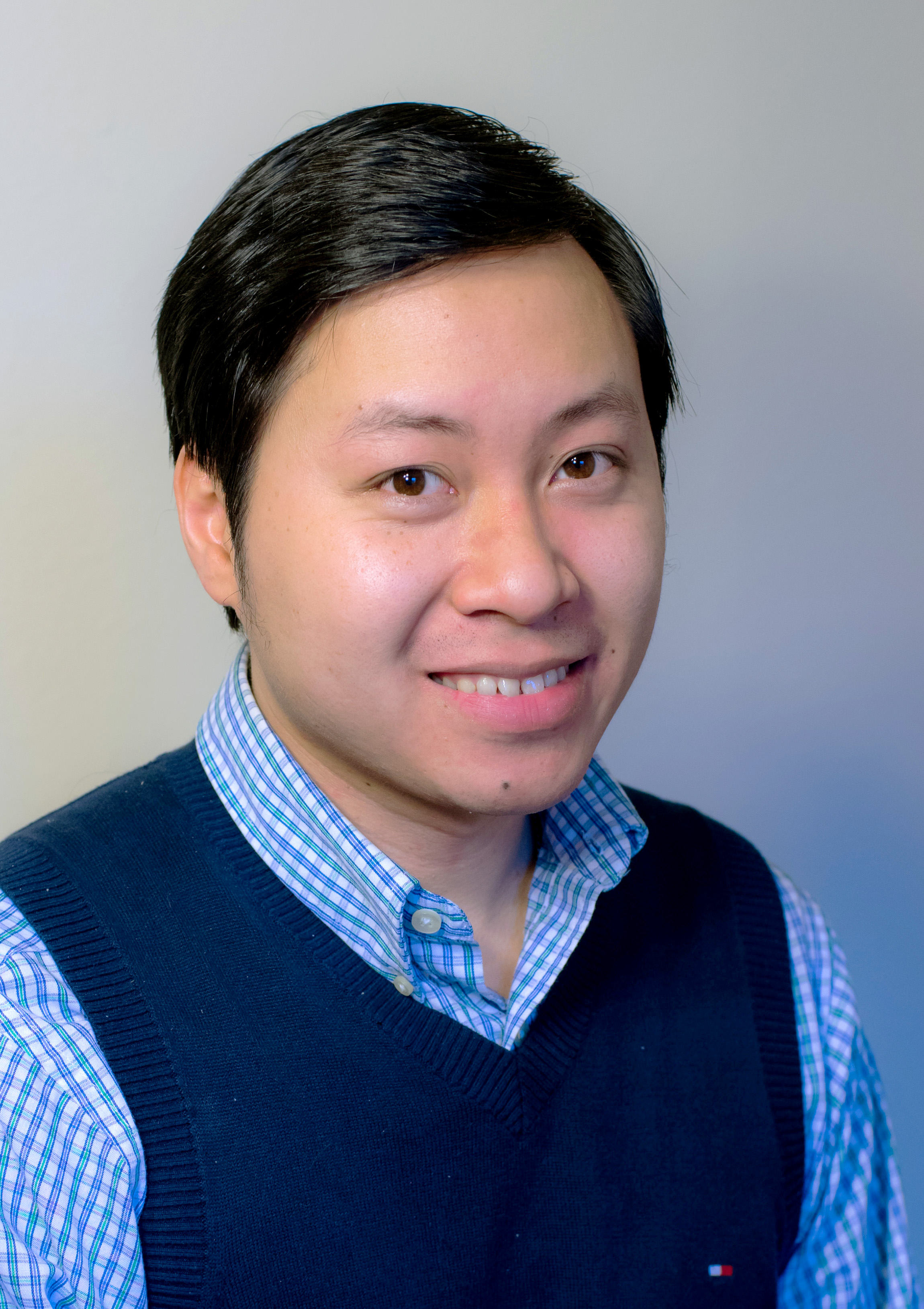
Yet what could be a detriment can also become a strength. In quantitative reasoning, students are encouraged to learn from their peers as much as they learn from the teaching assistants and the professors.
“In the class, we often work in groups or pairs. Sometimes I’m the one explaining, sometimes someone else will see it from an angle I hadn’t thought about at all. And I am most enthusiastic about working with my team on the science project. We have many different roles to conduct experiments, to think through the data, to learn from each other. I think it’s a great way for me to develop myself,” reflects Thuy.
This collaborative spirit is crucial at Fulbright, and it is not reserved to students. As an innovative course, the professors found necessary to offer channels for students to take charge and refine the learning experience for themselves and their future peers, thus getting acquainted with the co-designing process at the core of Fulbright’s philosophy. Every lesson, students are encouraged to provide feedback on their learning experience through reflections and short surveys, a constant two-way channel of communication. “We have to do the reflection at the end of the class, every time. I think that is also a good time for some people who are not really good at math or science to explain their difficulties,” says Thuy.
Furthermore, the survey questions themselves – designed by students in a prior year – are subject to being changed, added upon, or even removed. “People often think that innovation is a product or something that you produce, but it’s really a process. And being part of that process is very important for students to experience. How they can take somebody else’s work and improve upon it, and how this is one way that we continue to make things a little bit better,” concludes Graeme.
In the true Fulbright spirit, they will present their findings with the Fulbright community when the course ends, building tighter social networks along the way.
Antoine Touch
